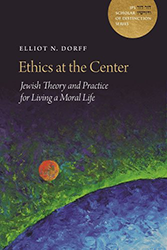People usually know Hannah Arendt for her work covering the Adolf Eichmann trial in Jerusalem in 1961, and for her invention of the term “banality of evil” to describe Eichmann. It was a term that was greatly misunderstood at the time (and perhaps today). But Arendt was not trivializing evil — she was arguing against moral relativism and for the importance of making moral choices. This was a guiding principle she pursued throughout her life and career.
Arendt was born in Germany in 1906 and studied at Heidelberg University under Martin Heidegger. She earned a PhD in philosophy, but her career was cut short by the rise of the Nazis. She escaped via Portugal to the United States, arriving in New York in the spring of 1941. While she taught at numerous universities in the US, it was her writings that made her one of the most influential philosophers of the twentieth century.
In this book, Lyndsey Stonebridge focuses on Arendt’s The Origins of Totalitarianism, The Human Condition, and On Revolution, in addition to her coverage of the Eichmann trial. Having seen totalitarianism up close in Germany and Russia, Arendt warned of the attacks on freedom that she saw in the rise of figures such as Juan Péron and Hungary’s communist leadership.
The Hungarian Revolution was a modern event that a lifelong admirer of revolution could use to good effect in her writing. Arendt understood freedom as humanity’s highest achievement. As Stonebridge puts it,” Freedom to participate in your own government … to have dignity, to be a citizen and not a subject; that was the essence of revolution.” She saw this theme in every revolution, from the American and French Revolutions to the Civil Rights Movement of the 1950s and 1960s. Revolution is inevitable, Arendt argued, because it arises from suffering, and suffering is intolerable. She was convinced that the first step to revolution is thought: how people think and how they act on what they think are prerequisites for making moral choices — choices like revolution.
Like St. Augustine, on whom she wrote her dissertation, Arendt saw love at the center of life. She married Heinrich Blücher and had a talent for relationships, whether in marriage or among her large, intellectual circle of friends. In love, she believed, we find our humanity.
Stonebridge has written a fine book for anyone who wants to explore Arendt and her writings. Her work here will set others forth on a greater path to understanding.
Jill S. Beerman grew up in New Jersey and attended Montclair State University. She has a doctorate in American Studies from New York University. She taught high school and college for twenty-five years.





